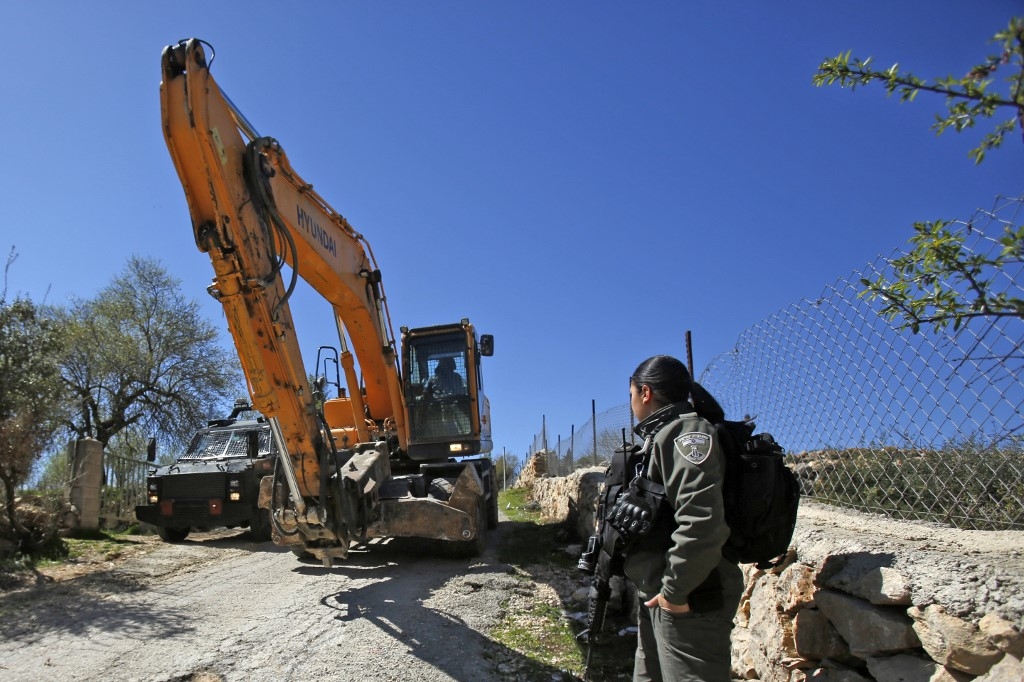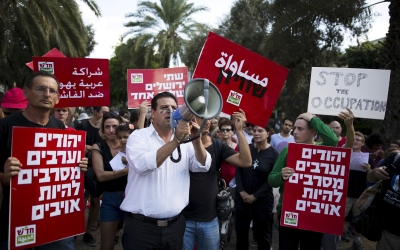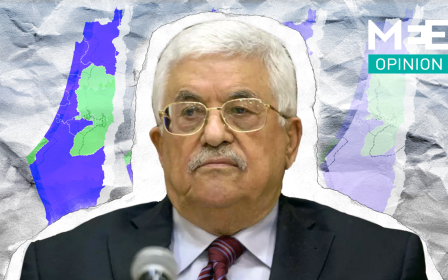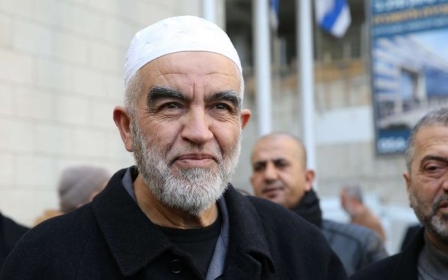Israeli bulldozers raze Palestinian lands near Bethlehem for settlement expansion

Israeli bulldozers on Monday razed Palestinian agricultural lands east of Bethlehem in the occupied West Bank, with the intention of expanding an illegal outpost, Ibei HaNahal.
The land belongs to Palestinian residents of Kisan village, on which Ibei HaNahal was built in 1999, and is located south of the West Bank, near the Hebron Road and within the Gush Etzion settlement bloc.
Kisan village council said in a statement that the Israeli bulldozers have been razing and destroying agricultural lands for past six days, and that settlers had installed caravans in the area.
Last week, Israeli bulldozers razed 100 hectares (10 dunams) of Kisan, according to Palestinian news agency Wafa.
Almost 800 Palestinian live in Kisan, east of Bethlehem, and are surrounded by two major Israeli settlements, Maale Amos and Avi Menahem, and a quarry.
In June, Israeli authorities halted the renovation and expansion of Kisan's elementary school, and seized a bulldozer, according to Wafa.
Kisan had closed down its kindergarten and turned it into a 100-square metre school, attaching some caravans to use as classrooms.
The expansions of nearby settlements and the construction of Israel's notorious separation barrier have cut off much of the village's land from its people. It has been estimated that 65 percent of the village’s lands will be cut off by Israel once the barrier's construction is completed.
Israel has occupied the West Bank since the 1967 Middle East war, and illegally settled hundreds of thousands of its citizens there. The continued expansion of settlements has made a solution to the Israel-Palestine conflict an ever more remote possibility.
In February, Israeli Prime Minister Benjamin Netanyahu announced he planned to authorise the construction of some 3,500 homes for Jewish settlers in one of the most sensitive areas of the occupied West Bank, which will link Kfar Adumim and Maale Adumim settlements with East Jerusalem.
Middle East Eye delivers independent and unrivalled coverage and analysis of the Middle East, North Africa and beyond. To learn more about republishing this content and the associated fees, please fill out this form. More about MEE can be found here.





